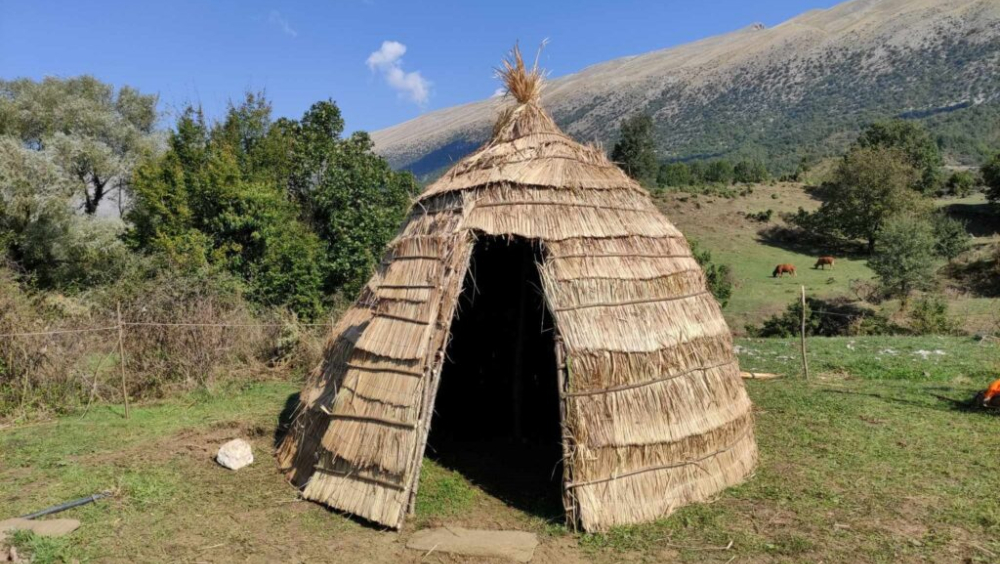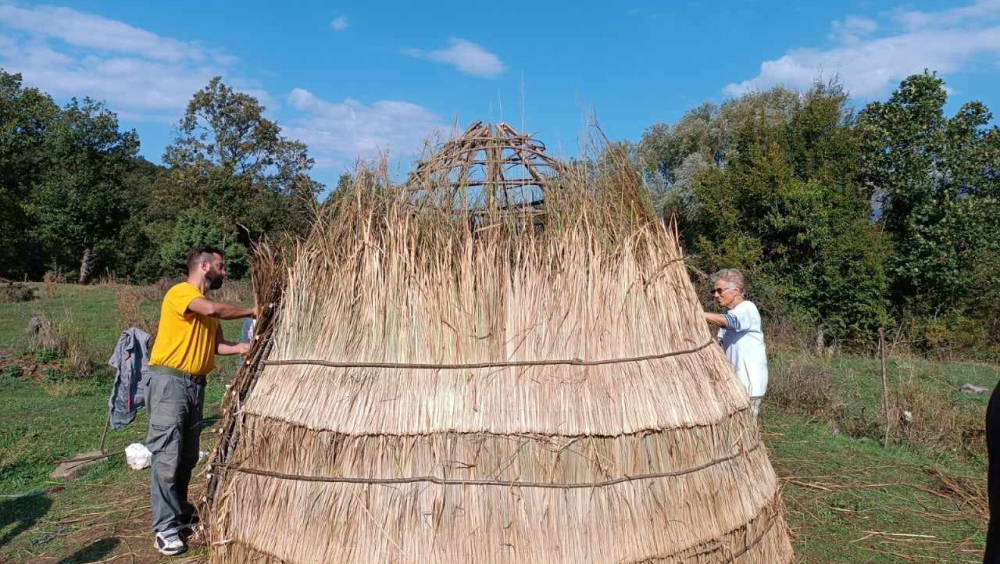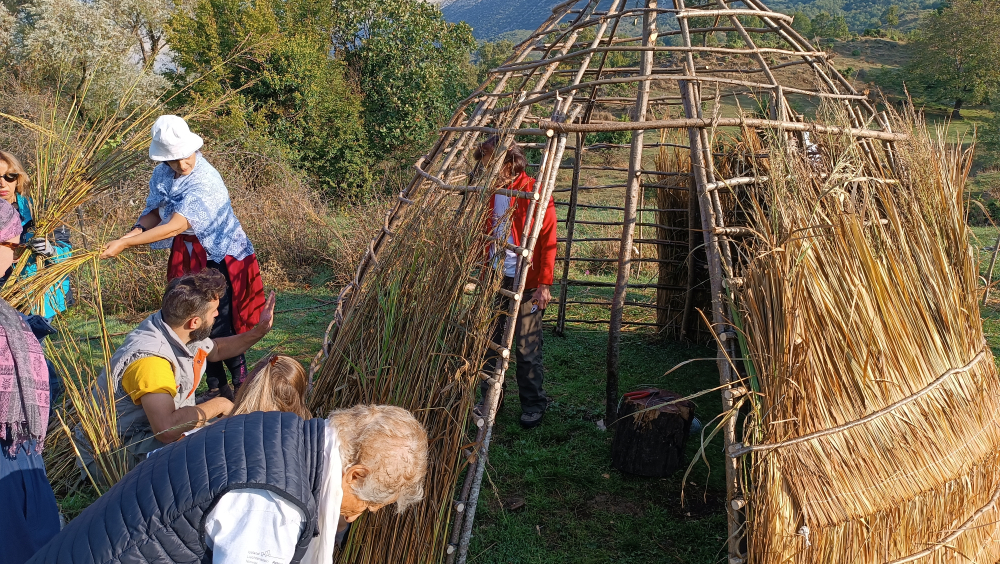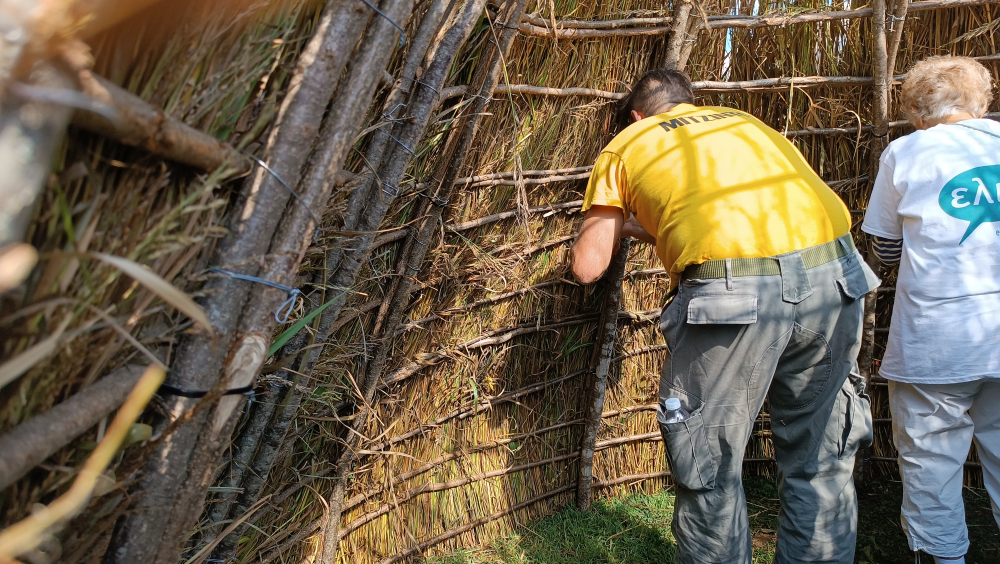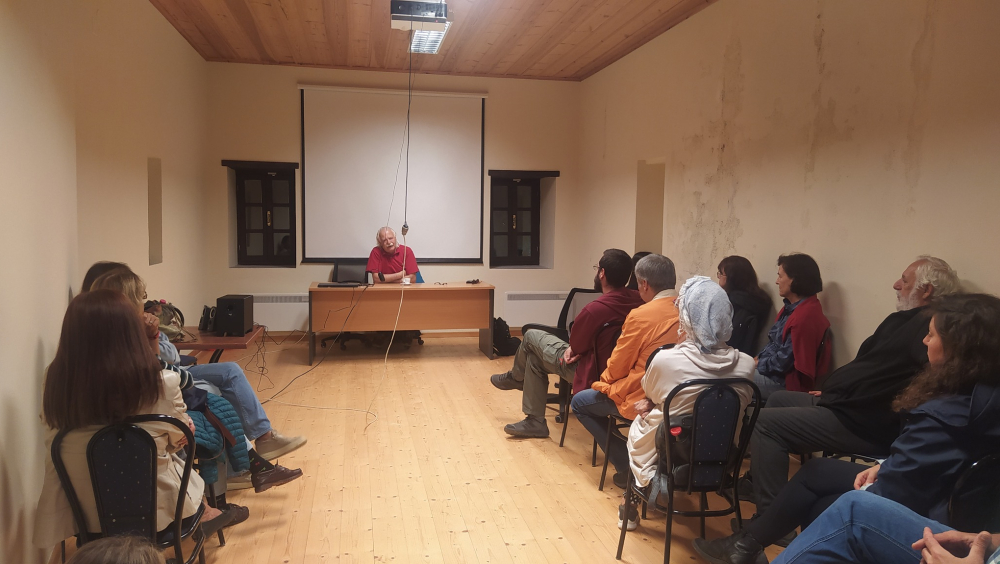Echoes of Tradition: Ecomuseum Zagori's Reviving Europe's Transhumance Legacy
Set against the stunning backdrop of the mountainous Epirus' region, Ecomuseum Zagori embarked on an inspiring journey to preserve and celebrate the cultural heritage of Epirus through a transformative ten-day Workcamp for the reconstruction of a traditional hut.
The initiative aimed to preserve and promote the cultural identity intertwined with transhumance, the seasonal movement of livestock between summer and winter pastures. Beyond mere preservation, the workcamp celebrates the inventive and sustainable practices of traditional hut construction and the unique connection that transhumance has with the natural and cultural heritage of the area, underscoring their integral role in shaping the region's identity.
As part of the European Heritage Days 2023, this endeavor held great European significance, shining a spotlight on the continent's rich cultural tapestry and the importance of heritage conservation. Through a multifaceted approach encompassing workshops, events, and expert lectures, participants immersed themselves in the social and cultural practices of transhumance, gaining invaluable insights into the customs and traditions of the region.
The rich traditional practice of transhumance, recognized and declared as an Intangible Cultural Heritage of Humanity by UNESCO, forms a common identity not only for the local community but also across Europe. The Workcamp wasn't just about reconstructing a hut; it was a celebration of the ingenious and sustainable practices that have shaped Epirus' identity for centuries. By mobilizing the public and actively involving the local community in the construction process, the initiative fostered a sense of pride and ownership in preserving cultural legacy and set a high standard for heritage conservation in the European context.
In the heart of the picturesque Epirus region, nestled among the majestic mountains, lies the Ecomuseum Zagori – a guardian of cultural and natural heritage, dedicated to preserving the essence of the land and its people. In a remarkable display of commitment and innovation, Ecomuseum Zagori orchestrated a transformative campaign: a ten-day Workcamp aimed at reconstructing a traditional hut in the quaint village of Drymades Pogoni Ioannina.
Supported by ELIX, the Municipality of Pogoni, and the Association of Transhumance Breeders of Epirus, this initiative was not merely about rebuilding a structure; it was a testament to the enduring spirit of the region. With multifaceted objectives in mind, the initiative sought to mobilize the public and safeguard endangered heritage in Europe. At its core, the project aimed to preserve and celebrate the cultural heritage intertwined with transhumance – the seasonal movement of livestock between pastures. Through the reconstruction of a traditional hut, the initiative also showcased the ingenious and sustainable practices of traditional construction, leaving a lasting impact on sectors like tourism and architecture.
The Workcamp was a hive of activity, buzzing with workshops, events, and enlightening lectures by experts and academics. Participants, both local and international, worked tirelessly to resurrect the age-old structure, which once served as a temporary shelter for nomad breeders. As hammers clanged and saws sliced through the air, the group delved into the rich tapestry of social and cultural practices of the herders, immersing themselves in the customs and traditions of the past.
But this project was more than just a reconstruction effort; it was a journey of discovery and rediscovery. By actively involving the local community and migrating herders in the construction process, the initiative breathed new life into age-old traditions, bridging the gap between past and present. Through hands-on experience and meaningful interactions, participants gained invaluable insights into the living heritage of the region, forging connections that transcended time and space.
As the project unfolded, it garnered attention far beyond the borders of Epirus. The European Heritage Days 2023 provided a fitting platform for the initiative to shine, underscoring the continent's rich cultural diversity and the importance of heritage preservation. Media coverage amplified the message, showcasing not only the reconstruction project but also the region's vibrant transhumance heritage, sparking conversations about the broader issues of heritage conservation.
In the end, the Workcamp was not just about rebuilding a hut; it was about preserving a way of life, honoring the legacy of generations past. Through collaborative efforts and unwavering dedication, Ecomuseum Zagori has emerged as a beacon of innovation and stewardship, setting a high standard for heritage conservation in the European context. As the echoes of hammers fade and the dust settles, the reconstructed hut stands as a testament to the enduring resilience of the human spirit and the timeless bond between culture and landscape.
The European Dimension of Ecomuseum Zagori's Workcamp for the reconstruction of a traditional hut transcends local borders, resonating with the broader context of European heritage. At its core, European heritage encompasses not only tangible structures and artifacts but also intangible cultural practices and traditions that have shaped the continent's identity over centuries. This initiative aligns perfectly with the Council of Europe's values of human rights, democracy, and the rule of law by promoting inclusivity, community engagement, and cultural diversity.
By participating in the European Heritage Days 2023, Ecomuseum Zagori's project highlights the pan-European nature of transhumance and its significance in shaping the continent's cultural landscape. Transhumance, recognized as an Intangible Cultural Heritage of Humanity by UNESCO, underscores the shared history and interconnectedness of European communities, transcending national boundaries.
Furthermore, the reconstruction of the traditional hut serves as a tangible link to key European events and movements, showcasing the enduring legacy of rural traditions and sustainable practices that have persisted throughout Europe's history. This action not only preserves tangible heritage but also promotes the intangible values of community, sustainability, and cultural resilience that underpin European integration.
At a European level, the impact of this initiative is multifaceted. It fosters a deeper understanding of Europe's shared history and cultural diversity, promoting dialogue and collaboration among European communities. By celebrating and preserving endangered heritage, Ecomuseum Zagori's Workcamp contributes to the promotion of common European values and fosters a sense of unity and solidarity across the continent. Ultimately, this action reinforces the importance of heritage conservation as a cornerstone of European identity and integration.
